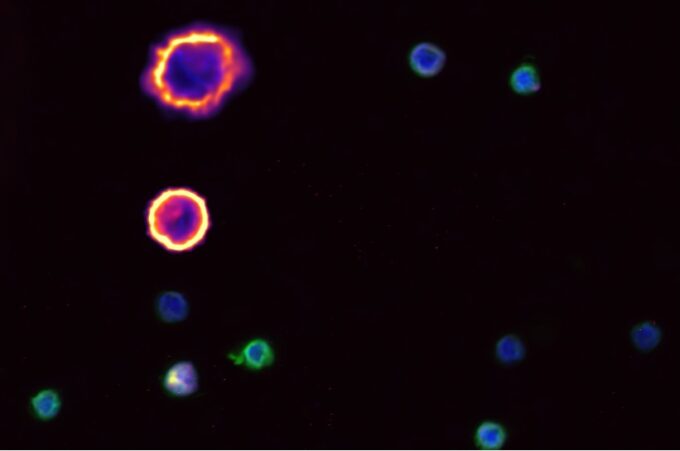Patients are missing out on liquid biopsies that could improve care and equal access to treatment.
Liquid biopsies can provide tumour information at a crucial time and inform treatment when solid biopsies cannot, but they’re still not in general use here.
The relatively recent technology allows biomolecular assessment of a tumour using a standard blood test to analyse circulating tumour cells (CTC) and DNA (ctDNA), rather than an invasive solid tumour biopsy.
“If you want to personalise therapy for a patient, you need to know what their tumour looks like at any time of the cancer journey,” UNSW Associate Professor Therese Becker, who leads liquid biopsy research at the Ingham Institute for Applied Medical Research, told The Medical Republic.
“Having a big chunk of tumour to analyse has certain advantages to having just a handful of cells. But being able to look at that handful of cells at all the time points where we want to get information about the cancer is a huge advantage,” she said.
It is not always possible to excise a solid tumour, such as when a patient cannot have surgery because they’re too frail, or when a cancer has recurred but is still in the bone metastasis stage, “but you can of course take a blood sample and look for circulating tumour cells and DNA that has been released by the tumour, and we get the information that way.
“It allows us to look at the cancer longitudinally at the time when new management, new therapy may be necessary,” Professor Becker said.
Another advantage of the liquid biopsy is that it can take into account tumour heterogeneity, whereas any given tumour sample may be quite different to another metastases. And if one blood sample does not contain enough cells for analysis, getting another blood sample is not a big ask, she said.
“All metastases should shed material into the blood, so we can see potentially more than by looking at a small biopsy of a tumour. We don’t know if we can see 100% of it; we will never know, I guess.”
Liquid biopsies would also help further the Australian Cancer Plan goal of equity, said Professor Becker.
“There’s a potential that we haven’t even fully dipped into where we can offer liquid biopsies. Some cancer patients can miss out on relevant clinical trials because it’s too hard for them to get there. Instead of having to travel 10 times a year, you need to travel three or four times a year. And the other times, we just take a blood sample. It is a big game changer.”
Liquid biopsies are already available in the US and Europe, but not in Australia where patients can only access them through small trials being conducted by research laboratories like Professor Becker’s.
“We really haven’t done large scale trials because of lack of funding, that’s the main reason,” said Professor Becker, “although we do already collaborate with some pharmaceutical companies that are interested in using them in their clinical drug trials.”
But there is already demand from patients for the tests, with some telling Professor Becker they had accessed CTC tests via other countries like Germany.
“We definitely have to move forward and into a more diagnostic setting and we’re talking about how we can do this, but it’s still in its infancy,” Professor Becker said.
“And it’s always the question, how will it be funded?”


